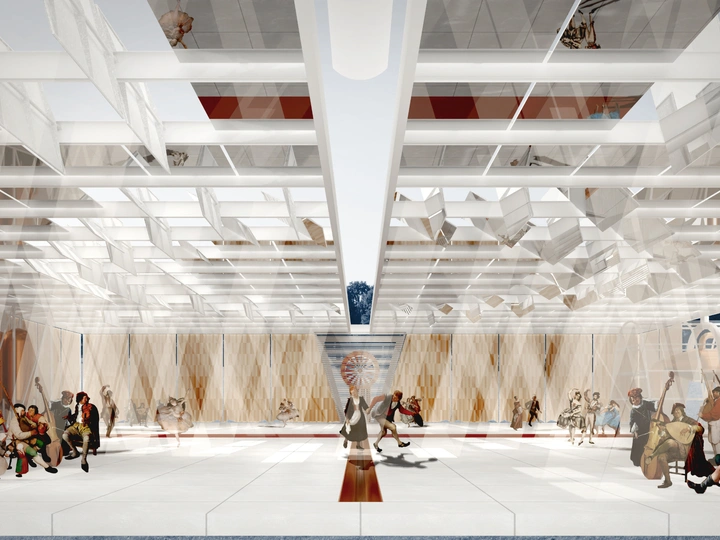Celebrating the unproductive

Name of the studio encompasses the interest of the practice and has two meanings: divided among, shared by a number and separate, distinct.
Dividual has engaged in a series of projects that challenge the development of the contemporary environment, considering resources as a point of departure in spatial design. Approaching space as a resource shifts focus of studio’s work from articulating to unlocking spaces, allowing office to change obsolesce into a design opportunity. Adopting this approach opens up discussions about ownership, use and sharing, allowing the practice to consider innovative typologies.
Architecture, together with various pieces of infrastructure forms an mostly invisible system of distribution for vital resources. With modernisation and industrialisations these systems, once forming a centre of community life, became a domain of technical experts and disappeared from public perception. Climate crisis necessitates redevelopment of our resource networks, improving its sustainability. For Dividual it is not only an efficiency question but rather an opportunity to reimagine the position of resources in public life and culture. Through speculative design, the office investigates possibilities of creating new types of public buildings related to resources, which allows communities to organise around shared values, offer new ways to experience resources and allow more careful consideration of using available goods.
Finally, Dividual’s team is interested in the resources used in creation of architecture. The necessary shift towards circular and bio-based building materials requires experimentation to develop aesthetics expressing character of the material.
Dividual has been selected for the Young Innovator programme by the Board of Government Advisors of the Netherlands. Studio’s work was selected as one of the finalists of the Prix de Rome competition and Superscape competition as well as received a special mention during Europan 15.
Celebrating the unproductive is a speculative project which explores the relations between production, resources, landscape and architecture. The project proposes a layered intervention in Veenhuizen, an artificially transformed, historical landscape dedicated to agricultural production.
A diagonal stripe of land is excluded from the productive logic of the area. The patch of land becomes idle and nature is invited to develop freely. Contrasting the orthogonal composition structure of the area, the patch receives a special significance. As nature gradually takes over the strip and the production around it intensifies, the contrast between this monument to unproductivity and the rest of the area becomes starker and serves as a reminder of the impact that production has on the landscape and of the labour necessary for tilling the land.
Transformation of the landscape is facilitated and stimulated by a series of machine-like pavilions with a task to provide: water, food, energy and material in a closed cycle where resources are treated with care and nothing is wasted. These structures are nodes in an automated resource generated system, providing its residents with basic goods. Through their design the pavilions invite users and create backgrounds for various activities - they are pieces of infrastructure and public buildings at the same time. For instance, mirrors focusing the sun rays and generating energy are lifted above the ground and create a shaded plaza. This space can be used for debates and performances.
Four pavilions together form a new metabolism for the site and a scenery for rituals related to resources. As such they offer an opportunity to redevelop the almost mystical connection we had to the resources around us, reflect on the ways we use the finite resources and encounter each other on the base of shared values.